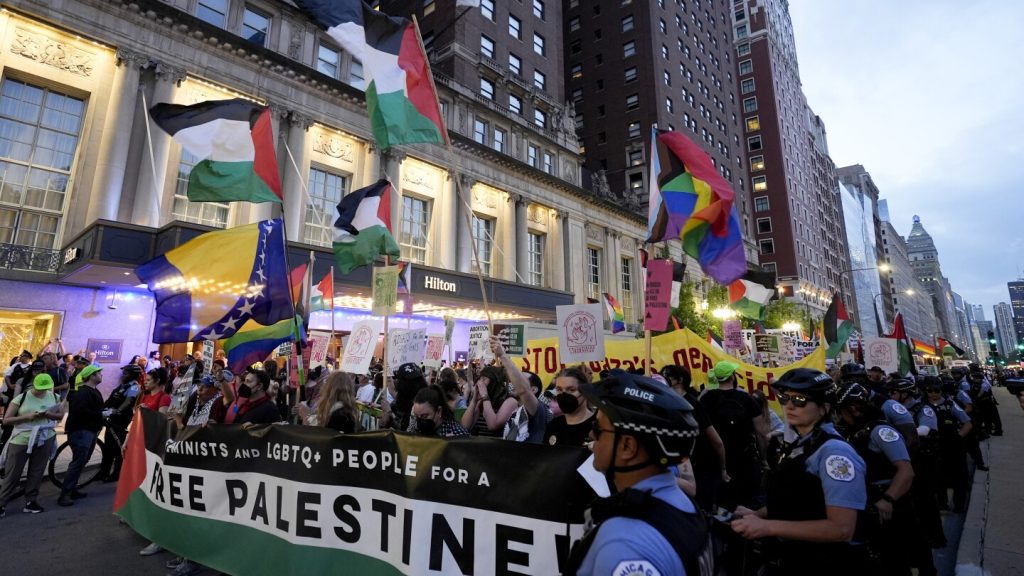Thousands of activists are expected to gather in Chicago for the Democratic National Convention, with a focus on issues such as abortion rights, economic inequality, and the war in Gaza. While Vice President Kamala Harris is set to accept the Democratic nomination, progressive activists remain committed to their causes. Taking inspiration from the recent Republican National Convention in Milwaukee, activists predict larger crowds and more robust demonstrations in Chicago, a city known for its history of social activism.
Protests are expected to take place every day of the convention, with a common goal of calling for an immediate cease-fire in the Israel-Hamas conflict. The convention’s eve saw a march along Michigan Avenue advocating for abortion and LGBTQ+ rights, as well as against the war in Gaza. Despite a small counter-protest by anti-abortion activists, the march remained peaceful with a strong police presence. Organizer Linda Loew highlighted the importance of international reproductive rights and criticized the U.S. funding of wars as detrimental to healthcare.
The Coalition to March on the DNC, the largest group of activists, plans demonstrations on the first and last days of the convention, with an expected turnout of at least 20,000 protesters. Activists from various states, including college students, are joining in the demonstrations to influence foreign policy decisions made at the convention. While initially facing restrictions on protest permits, activists successfully negotiated for a designated park and march route closer to the United Center, where the convention is being held.
With Vice President Harris as the new nominee, many activists doubt significant policy changes from the Biden administration. Pro-Palestinian protesters have been vocal in their criticism of current Democratic policies and have organized their own events. The convention’s security preparations have been intense, with an estimated 50,000 people expected to attend. City leaders have focused on ensuring safety with street closures, increased police presence, and strategic emergency preparedness measures in hospitals.
Amidst preparations for the convention, concerns remain about the potential for protests turning chaotic or unpredictable. Activists like Hy Thurman, who protested at the 1968 convention, see personal significance in returning to protest the war in Gaza. State officials, including Illinois Governor JB Pritzker, have expressed a commitment to protecting protesters’ First Amendment rights while ensuring public safety. As the convention approaches, the city of Chicago is bracing for a significant influx of activists and delegates, with an emphasis on maintaining peace and order during the demonstrations.


